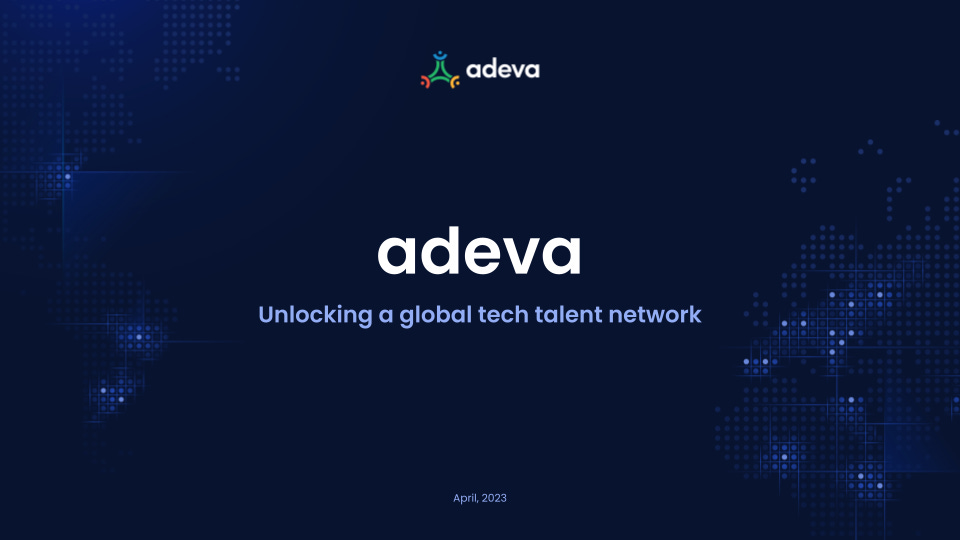Welcome to CTO Insights #132!
This newsletter is delivering top-notch Software Engineering and Technical Leadership content, making your weekly reading more insightful and enjoyable.
This week’s favorite - What Do We Owe Our Teams?
CTO Insights is community-driven and thrives on your input. If you find value in what you read, I encourage you to share it with your friends in tech and your wider community, whether it be via social media, slack, teams, or any other channel you frequent.
Together, we can make every edition of CTO Insights a wealth of knowledge for all!
Featured
Adeva is a leading tech platform that helps companies hire tech contractors from over 35 countries worldwide.
Tap into a diverse network of experienced product and engineering contractors, to improve operational efficiency, reduce costs, and deliver mission-critical initiatives.
Architecture
IKEA-Oriented Development
"IKEA-Oriented Development" explores the concept of viewing every codebase as a home and programmers as homeowners, where IKEA's principles can guide software design. The article presents three key ideas -
treating packaging as the product,
implementing pre-packaged dependencies, and
creating composable and disposable systems.
These principles encourage a leaner and more efficient approach to programming, emphasizing the importance of optimizing data delivery, using universally accessible tools, and fostering a system that's hackable - easy to tweak, remix, and replace, just like flat-pack furniture.
The 80% abstraction
This article addresses the challenge of monolithic, complex software systems. As systems evolve under various constraints, they can become unnecessarily intricate.
The author suggests simplifying these systems by targeting 80% of use-cases, a strategy inspired by Sandi Metz. This approach focuses on current issues, reinforcing the system and enabling quicker, safer software development.
Scalability
Meta developer tools: Working at scale
Meta developers utilize several tools for large-scale coding. Sapling is a scalable version control system featuring a client, server, and virtual file system.
Buck2, a build system, supports remote caching, execution, and multiple languages. Infer, RacerD, and Jest offer static analysis and testing. Sapienz simulates user experiences for testing, while Phabricator aids in code review and submission.
Learn more about Meta’s toolkit here.
Culture
How to Manage Your Team’s Workload After Layoffs
All too often in the case of layoffs, the people who survive it are expected to pick up the work that their terminated colleagues left behind.
Meanwhile, these layoff survivors are often struggling with survivor guilt, anxiety, and low morale. In short, after a layoff, more is being asked of people who have less to give.
This is a recipe for disaster when it comes to burnout and retention of key talent. In this piece, the authors outline four strategies for right-sizing the workload on your team.
Leadership
Same Expectations, Half the Team — Now What?
The "Patagonia vest recession" refers to massive tech layoffs due to overstaffing. Product managers can handle this by focusing on organizing information, connecting product elements, structuring thinking, and allocating time for deep thought.
There are different tools companies can utilize can improve planning efficiency, transforming these challenges into skill-strengthening opportunities.
Product
From LaLa Land to The Matrix: Can AI replace product management?
In this story, the author looks at the astounding pace of the evolution of AI and how the marriage of human expertise with AI capabilities could potentially revolutionize the way we manage products.
While AI-powered tools can augment tasks for product managers, they aren't likely to fully replace them until AGI is achieved.
Other
Stack Overflow Developer Survey, 2023
This report, a trusted source for analysts, IT leaders, and developers, provides updates on emerging trends and predictions in tech.
Quite some interesting stats, make sure to review them in detail.
Building Real-time Machine Learning Foundations at Lyft
Navigating the challenges of integrating real-time streaming data, Lyft kickstarted a transformational initiative in their Machine Learning Platform, LyftLearn.
Unveiling three core capabilities and the ingenious RealtimeMLPipeline interface, Lyft is redefining how developers approach machine learning.
Dive in to explore this groundbreaking advancement in the world of ML.
How Google Measures and Manages Tech Debt
In a recent paper, Google researchers discuss their approach to managing technical debt. The study, driven by feedback from engineering satisfaction surveys, led to the identification of ten categories of technical debt.
Although the measurement of technical debt proved challenging due to its delayed nature, the process led to strategies for its effective management. These strategies include a management framework, a maturity model, instructional courses, and tools for identifying and managing technical debt, resulting in a notable decrease in reported technical debt.
What Do We Owe Our Teams?
The article delves into the significant responsibilities of product leaders towards their teams, which span across shielding them from organizational turbulence, promoting their achievements, providing clear career guidance, and fostering long-term relationships.
The emphasis is on the leader's role as a facilitator for optimal team performance, recognition, and career growth, mirroring the nurturing aspect of product development or child-rearing.
Experimenting at Scale, the Spotify Home Way
Spotify's Personalization team uses powerful tools and meticulous coordination to enhance user experiences through large-scale experiments.
Key in-house tools include Home Config for managing configurations, an Experimentation Platform for conducting tests, and Home QA for debugging. They also employ an Experiment Tracker and an Experiment Validation Assistant to manage and validate tests.
With continuous experimentation and innovation, Spotify aims to offer personalized, engaging experiences for its users, introducing more advanced concepts such as Interleaving to their toolkit in 2023.
Closing Notes
Thanks for making it this far! 🙏
I hope you enjoyed this week’s issue. Use the thumbs up/down buttons to rate and don’t forget to share the newsletter with fellows.




